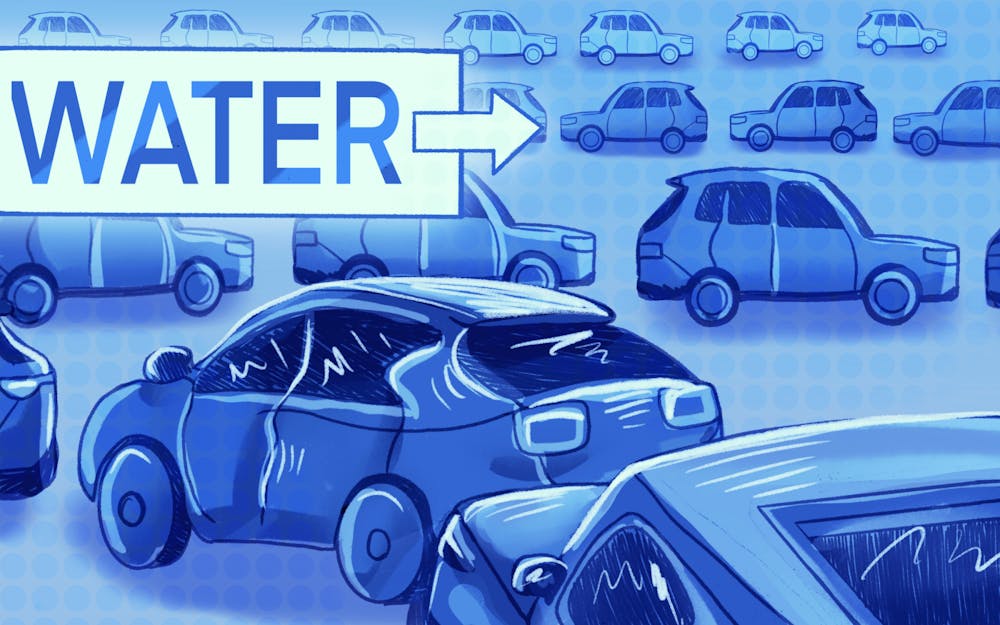The city of Jackson, Mississippi, is in crisis. Since late July, the city has been under a boil-water notice due to water system failures and massive flooding. Earlier this month, over 150,000 Jackson residents did not have any access to water.
Now, residents once again have water, but it’s still been deemed unsafe to drink, and government officials have said the crisis is far from over.
The population of Jackson is nearly 83% Black. Following school desegregation in the 1970s, many white residents of Jackson moved into neighboring cities in a phenomenon known as “white flight.” Wealthier Black residents followed them in recent decades. This resulted in less tax money for the city to repair its crumbling infrastructure, some of which is a century old.
The crisis in Jackson is just the latest in America’s long history of racism and inequality. In Jackson, residents wait in long lines to receive bottled water; in neighboring Ridgeland, with its white majority population, there is no crisis at all.
[Related: Black Voices: The truth will come to light, America needs to face its history]
And while the crisis in Jackson is currently the worst of such crises in America, it is far from the only one. From Baltimore to Honolulu, thousands of Americans don’t have access to clean drinking water, the majority of them being poor people of color.
My argument is simple. Many Black Americans have been impoverished due to centuries of slavery and oppression, from which no reparations were ever given. Today, Black Americans struggle to escape poverty and as a consequence their cities fall into disrepair due to a lack of resources.
What I’m describing is racism. It is not racism as it is usually thought of, not personal prejudice, but racism nonetheless.
For how can it be anything else? It was racism that thrust millions of people into poverty. It was racism that drove white people out of the cities and into the suburbs. The cities find themselves drained of resources due to racism. Lack of resources prevents the cities from repairing their old infrastructure. The old infrastructure cannot withstand heavy flooding. The result is crisis.
But good luck trying to get conservatives to admit this. Mississippi’s Republican officials flail about trying to pin the crisis on Democratic mismanagement. Additionally, officials from both parties have even suggested privatizing Jackson’s water system, as if the simple fact of turning over the water system to capitalists will magically resolve everything.
[Related: OPINION: MLK's other dreams: the radical civil rights movement]
Privatization is the last thing the city of Jackson needs. For one thing, private water services cost the typical household 59% more money than public services, according to Food and Water Watch. In Jackson, a quarter of the population already live in poverty – an increase in their water bills would only make things worse.
Enriching shareholders with no democratic accountability is a terrible solution to the crisis in Jackson. What is needed is a massive redistribution of wealth and resources to those who continue to be marginalized due to historical oppression.
“No society can surely be flourishing and happy, of which the far greater part of the members are poor and miserable,” philosopher Adam Smith wrote. “It is but equity, besides, that they who feed, clothe, and lodge the whole body of the people, should have such a share of the produce of their own labor, as to be themselves tolerably well fed, clothed, and lodged.”
America has benefitted enormously from the exploitation of the working class, and in particular Black Americans who, for much of American history, were compensated nothing for their labor. It is they who suffer through such crises as that in Jackson. The rich and poor do not suffer equally.
For racism to be adequately addressed, it is necessary to address the economic inequalities it has caused. To paraphrase Malcolm X, it is not progress to remove a knife from someone’s back. Ending legal segregation was never going to be enough. Progress is healing the wound – it is, as Smith said, giving the people their share of the produce of their labor.
The debt America owes to its Black citizens must be paid, for it is very long overdue.
Jared Quigg (he/him) is a junior studying journalism and political science.




